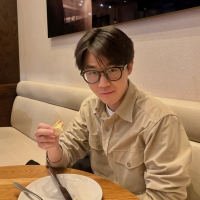Zeroth-order log-concave sampling: Uniform sampling from convex bodies

Host
Since the development of the first randomized polynomial-time algorithm for volume computation by Dyer, Frieze, and Kannan in 1989, convex-body sampling has been a central problem at the intersection of algorithms, geometry, and probability. A major milestone came in 1997, when Kannan, Lovász, and Simonovits analyzed the Ball Walk and formulated the influential KLS conjecture. This was extended to log-concave distributions by Lovász and Vempala in 2006, and further accelerated by Cousins and Vempala in 2015 through warm-start generation techniques.
In this talk, I will present new and principled approaches that understand, streamline, and improve these advances. First, I propose a simple variant of the proximal sampler that achieves the query complexity with matched Rényi orders between the initial warmness and output guarantee. Then, I introduce a simple annealing scheme that produces a warm start in q-Rényi divergence. To relay a Rényi warmness across the annealing scheme, I establish hypercontractivity under simultaneous heat flow and translate it into an improved mixing guarantee for the proximal sampler under a logarithmic Sobolev inequality. These results extend naturally to general log-concave distributions accessible via evaluation oracles, incurring additional quadratic queries.